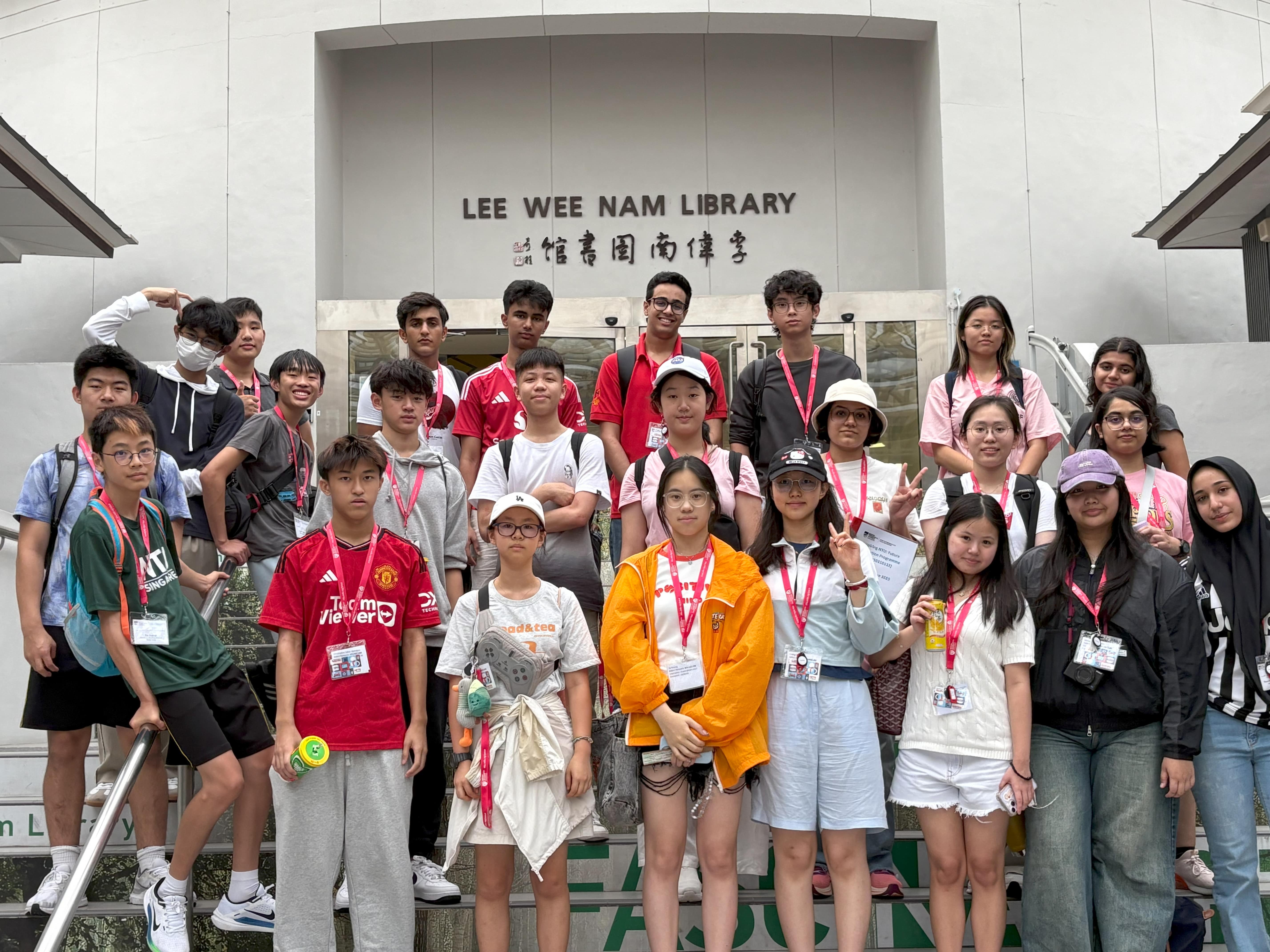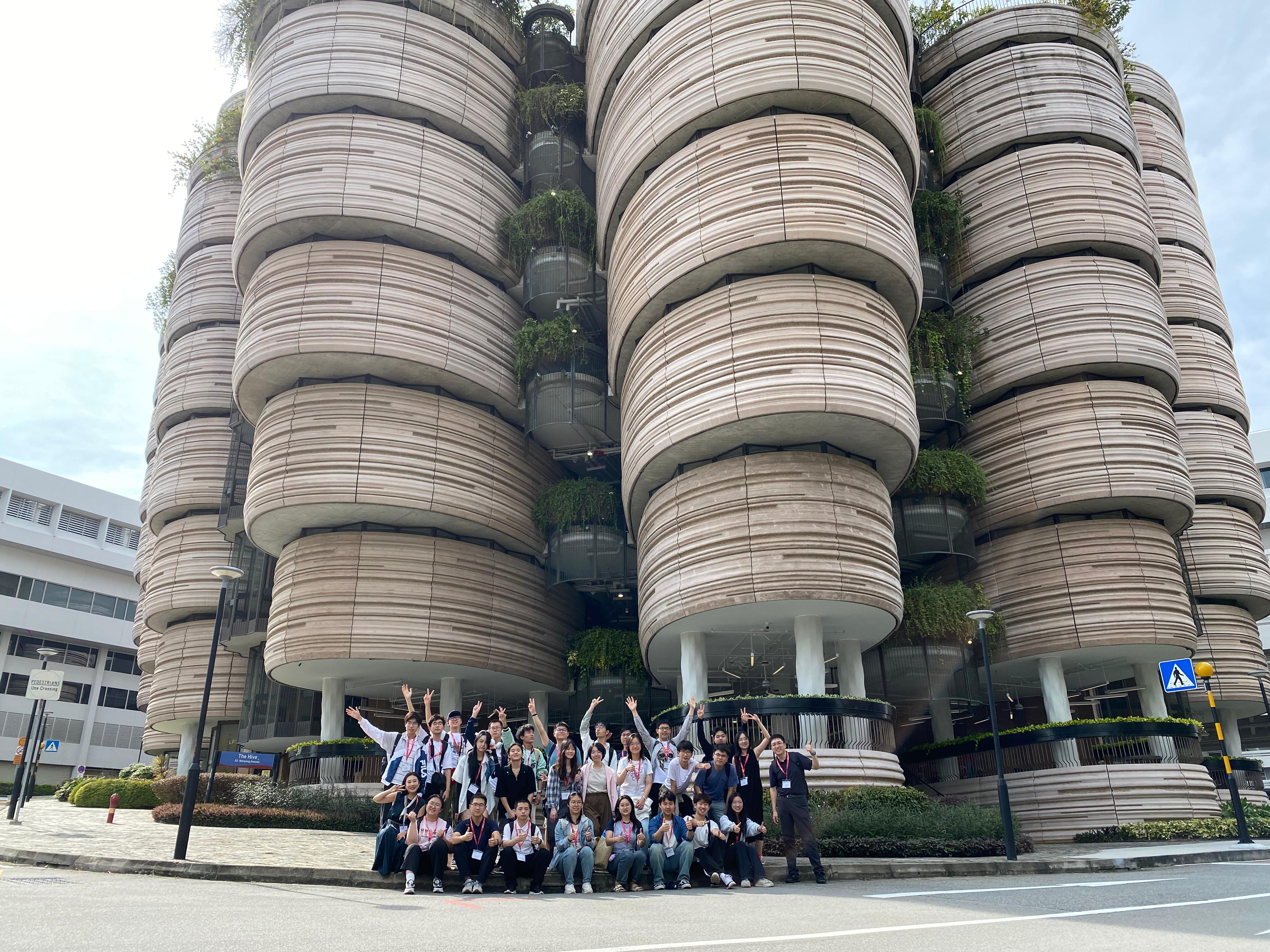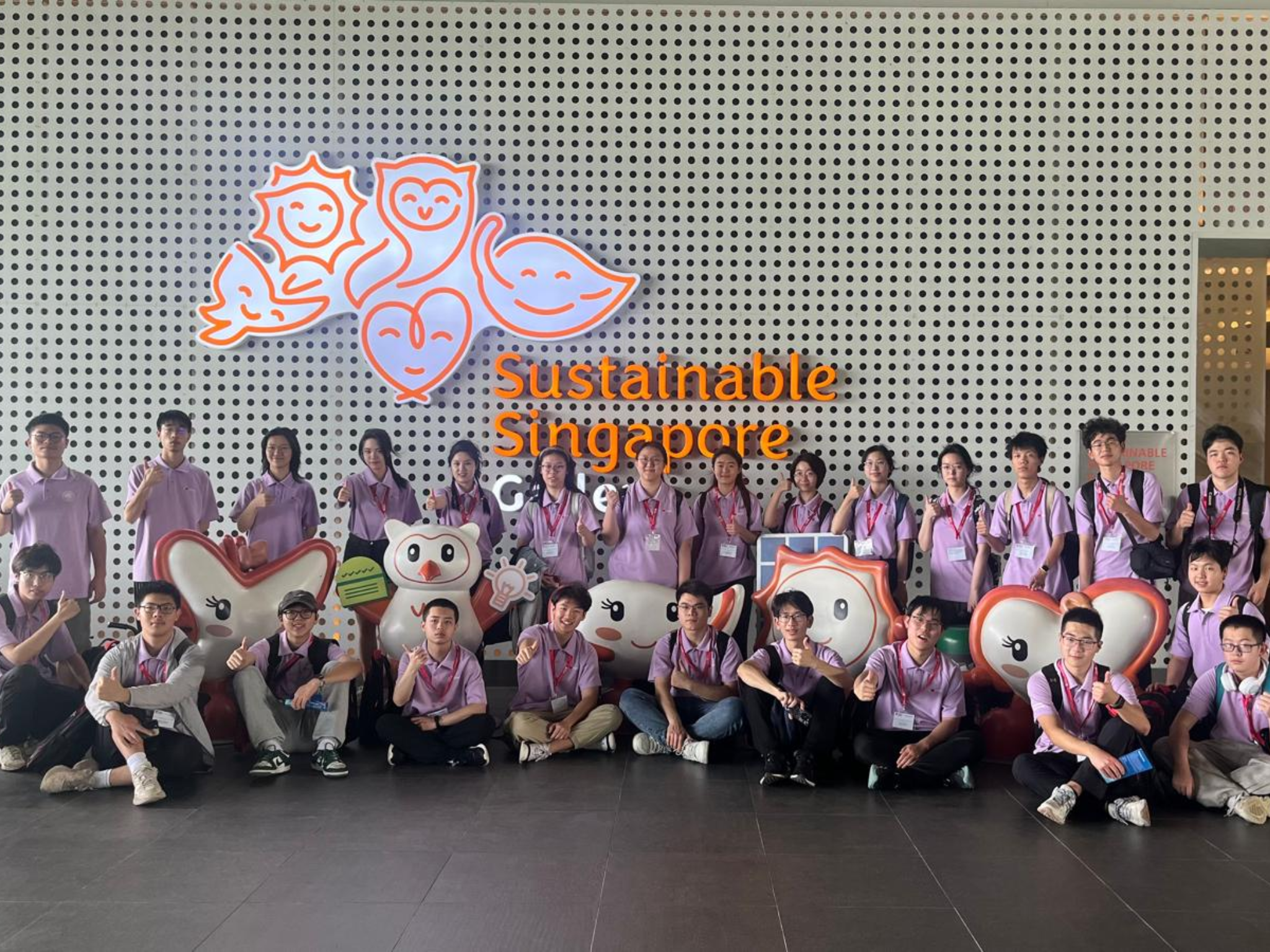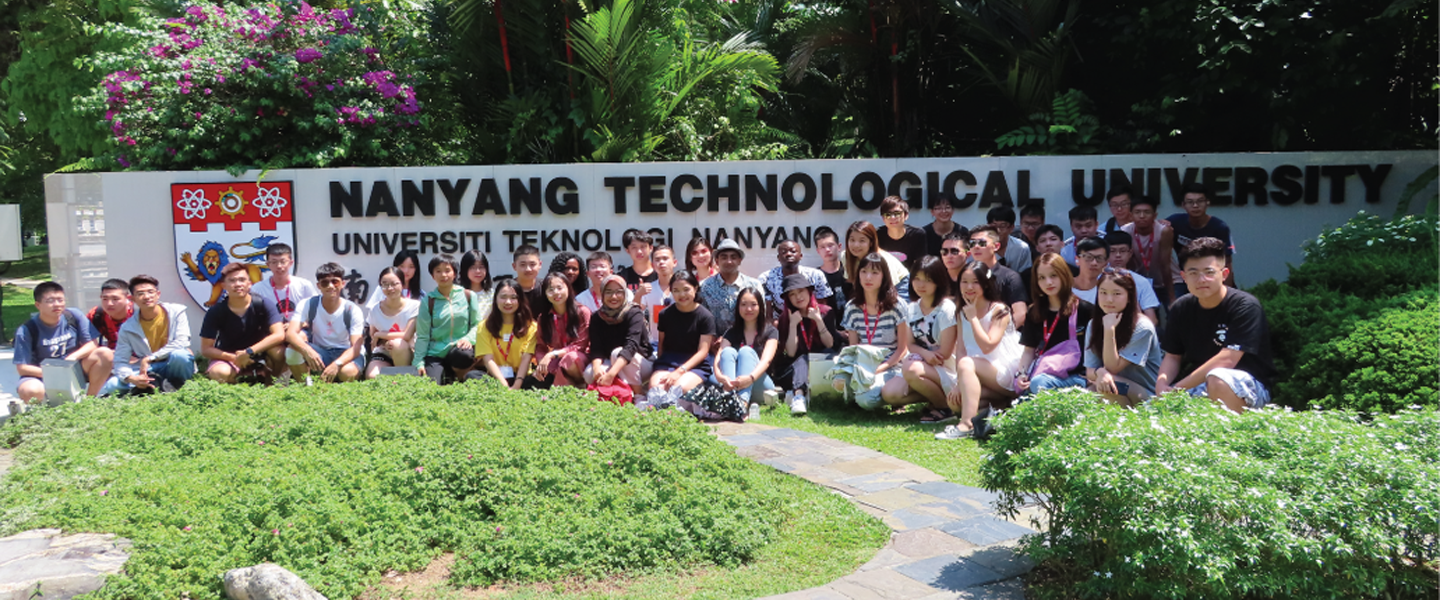Student Immersion Programmes
We welcome international university and high school students to join our specially curated programmes conducted at the NTU campus
WHY CHOOSE NTU STUDENT IMMERSION PROGRAMME?
Global Perspective: Obtain knowledge and skills to meet new global challenges. Gain a global perspective by discovering new cultures, traditions, and ways of thinking. Engage with students from different backgrounds, fostering cultural understanding and empathy.
Professional Development: Develop emerging and essential skills for the future. From communication and teamwork to problem-solving and adaptability, our programme equips students with the knowledge and skills necessary to step into the working world.
Tailored Experiences: Choose from a range of immersive experiences tailored to your interests and academic goals. Identified key topics are delivered by NTU faculty members and adjunct trainers.
Attain certificate from one of the renowned Universities in Singapore: Students who attain at least 75% attendance will be awarded an NTU Certificate of Completion.
Our Programmes
The Power and Possibilities of AI

Step into the world of innovation at Nanyang Technological University (NTU), one of the world’s top young universities. This 4-day winter programme invites high school students to explore the exciting possibilities of artificial intelligence (AI) and experience campus life in Singapore.
29 June - 3 July 2026 (Registrations opening soon)
3 - 7 August 2026 (Registrations opening soon)
Inspiring NTU: Mastery Beyond Boundaries

Inspiring NTU: Mastery Beyond Boundaries is a one-week programme at Nanyang Technological University, Singapore, for students and recent graduates preparing for the digital economy. Through expert-led sessions and real-world case studies, participants will explore emerging technologies, digital trends, and essential future-ready skills. This immersive experience helps you broaden your outlook, build in-demand capabilities, and prepare for your next academic or career step.
8 - 12 June 2026 (Registrations opening soon)
27 - 31 July 2026 (Registrations opening soon)
Inspiring NTU: Future Exploration Programme

Embark on a journey to the future at Nanyang Technological University (NTU). This 5-day programme gives you the chance to dive into exciting topics like AI, FinTech, and sustainable technologies through interactive seminars with NTU’s top faculty. See the future in action with exclusive, behind-the-scenes access to NTU’s high-tech labs and research centers!
22 - 26 June 2026 (Registrations now open)
20 - 24 July 2026 (Registrations now open)
At NTU, we prepare students for the dynamic world with our wide selection of programmes:
| Business, Leadership & Communication | Sustainability, Urban Solution & Engineering |
AI Enhanced Business Communication Strategies | Offshore Engineering Applications and Water Management |
Managing Business Strategy | Urban Planning, Construction & Buildability |
Building a Sustainable & Future Ready Business | Urban Transportation |
Mastering Leadership in a Dynamic World | Minimising waste while maximizing value through sustainable solutions in civil and environmental engineering |
Strategic Leadership in a Complex Environment | Modulation and Digital Communication Principles |
| FinTech and the Future of Finance | Engineering Materials |
Sustainable Finance | Introduction to Materials Chemistry |
| Management Information System | Digital IC Design |
| Communication, Technology & Society | Introduction to Biomedical Engineering |
Communication History and Theories | Carbon Neutrality |
Storytelling for Oral Presentations | Modern Electric Motor Drives for Electric and Hybrid Vehicles |
| Business, Innovation & Digitalization | Motor Technology and Application in EV |
| Human Resource Management | 5G Communication Technologies |
| Strategic Analysis and Business Model Design | 5G Communication and Beyond |
| Navigating the Future: Energy Transition | |
| Data Analytics | |
| Python with Data Analytics | Innovation & Entrepreneurship |
| Business Data Analytics | Enterprise & Innovation |
| Business Data Process and Visualization | Innovation & Entrepreneurship in a Digital Future |
| Data Science and Analytics | |
| Applied Mathematics with applications in Big data, Business and Finance | Industry 4.0 & Advanced Manufacturing |
| Advanced Mathematical Methods | Industry 4.0: Technologies and Applications |
| Smart Manufacturing | |
| Media | Manufacturing Systems with AI Technologies |
| Fundamentals of Media | Mechanical Engineering and Artificial Intelligence |
| Introduction to Digital Media Art | Fundamental of Robotics |
| Communicating Visually | Technologies of Robotics |
| Robotic Sensing and Control | |
| Psychology & Education | Robotics, Automation and Internet of Things |
| A Scientific Look at Psychology and Culture | Advanced Robotics |
| The Singapore Education System and Future-Ready Learners | |
| STEM-SMART Inquiry-based Learning for Educators of the Future | Tech-Enabled Services & Intelligence Systems |
| AI & GPT | |
| Politics and Government | Robotic Process Automation (RPA) |
| The Cycle of Public Policy Making | Introduction of Artificial Intelligence |
| Growth and Public Policy | Theories and Applications in Artificial Intelligence |
| Machine Learning and Its Applications | |
| Healthcare & Life Sciences | Advanced Concepts in AI and Machine Intelligence: Theory and Applications |
| Infectious Diseases, Biochemistry, and Future Health | Preparing for Cyber Security |
| Life Sciences | Mastering Generative AI: From Data to Decisions |
| Understanding the Power of AI | |
| English Language & Writing Skills | Web Application Design |
English Language Proficiency Skills | Fundamentals of AI and Machine Intelligence Concepts & Applications |
| Academic Writing Skills | The Power & Possibilities of AI |
| English Communication Skills | Software Engineering |
| Others | |
Overview of Popular Career paths, from Cryptography, Finance, to Internet | |
| Ageing in Asia – Challenges & Opportunities |

"The programme was inspiring, hoping that I could have the opportunity to learn more in NTU." |
"The trainer was well prepared, and the programme was extremely helpful to me. I have benefited a lot from this programme, and I will highly recommend the programme and NTU to my friends and my teachers. When I graduate from Fudan University, I will be participating the MSC/PHD program at NTU and NTU will be my first choice for further study. I hope to see you in a year." |
"The professor's lectures were profound and simple, he answered our questions patiently with detailed explanations. The programme was excellent!" |
"What I particularly enjoyed about the study tour at Nanyang Technological University (NTU) in Singapore was the immersive learning experience and the opportunity to engage with a diverse group of students and faculty. The programme offered a unique blend of academic rigor and cultural exchange, allowing me to gain insights into cutting edge research and innovative teaching methods. Additionally, the campus environment was vibrant and conducive to both personal and intellectual growth. The chance to explore Singapore's rich cultural heritage and modern advancements further enriched the overall experience, making it both educational and memorable." – Ding WanNing, China |
Start unlocking a world of possibilities. Your future awaits!
Photo Gallery











